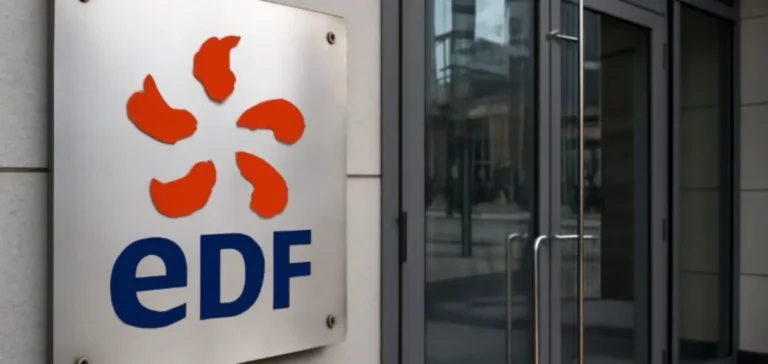The energy group EDF has announced probable production cuts at several French nuclear power plants from July 1. This measure, directly related to the high temperatures recorded in recent weeks, mainly affects plants cooled by river water. These constraints, dictated by strict regulatory thresholds, limit the release of heated water to protect aquatic ecosystems. The company has not specified the exact scale of the expected reduction, but forecasts will be adjusted daily at D-1.
Direct impact on nuclear capacities
These restrictions particularly affect power plants located along the Rhône and Garonne rivers, due to their reliance on flowing water for reactor cooling. Each nuclear facility is subject to specific regulations regarding the maximum allowable temperature for water discharged after industrial processes. When these limits are reached, EDF is forced to reduce output or temporarily shut down certain units. Such occurrences have become more frequent over the past two decades, as episodes of extreme heat multiply.
In the summer of 2003, a similar event resulted in simultaneous outages exceeding 6 gigawatts (GW), representing nearly 10% of the group’s total nuclear capacity. EDF estimates that since 2000, these thermal constraints have resulted in an average annual reduction of approximately 0.3% of total nuclear production. While this figure may seem limited, operational impacts during extreme episodes can be significant, particularly in managing summer electricity demand.
Immediate economic consequences
These mandatory adjustments generate revenue losses for the operator due to reduced production capacity during critical consumption periods. During summer months, energy demand notably increases due to extensive use of air conditioning systems nationwide. This temporary reduction in nuclear availability compels EDF to rely more heavily on alternative sources, notably thermal power plants, or to import more electricity from neighboring countries. This complex management requires immediate strategic adaptation from EDF to meet demand without jeopardizing the stability of the French power grid.
These production cuts, should they extend or intensify, could also influence wholesale electricity prices in Europe, particularly in short-term markets. Price increases in spot markets are generally observed when domestic production availability declines, due to higher import costs or temporary reliance on fossil fuel alternatives. The company closely monitors these variables to optimize its market strategy and minimize impacts on economic performance.






















